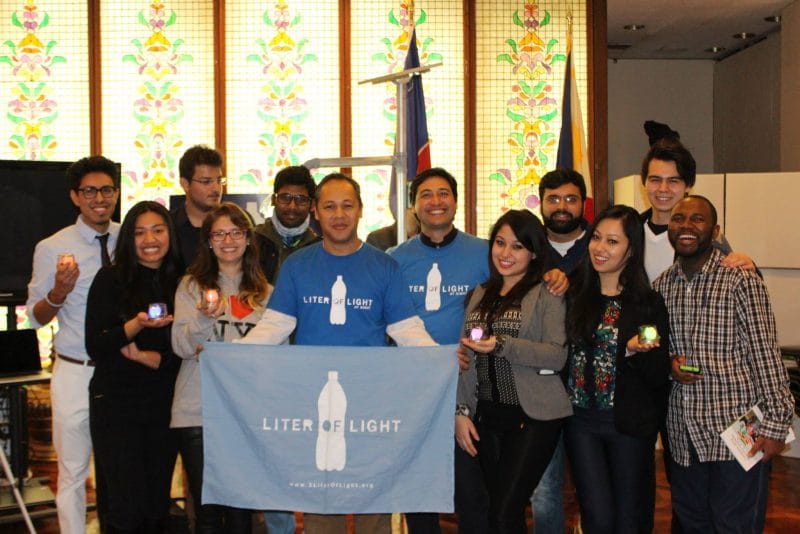
The Fulbright Foreign Student Program, which operates in over 155 countries all over the world, enables graduate students, young professionals, and artists from abroad to study and conduct research in the United States. Since 1945, the prestigious program has allowed more than 200,000 students and professionals from foreign countries to further their careers in the U.S. The Fulbright program provides generous funding and benefits including round-trip transportation to the host country, room, board, and incidental costs, book and research allowances, and full or partial tuition.
Stéphane Dias, a professor at the Federal Institute of Education, Science and Technology Farroupilha in Brazil and a 2014-2015 Fulbright Visiting Research Student at the Rutgers Center for Cognitive Science, shared with us her Fulbright experience and gave us some great application tips.
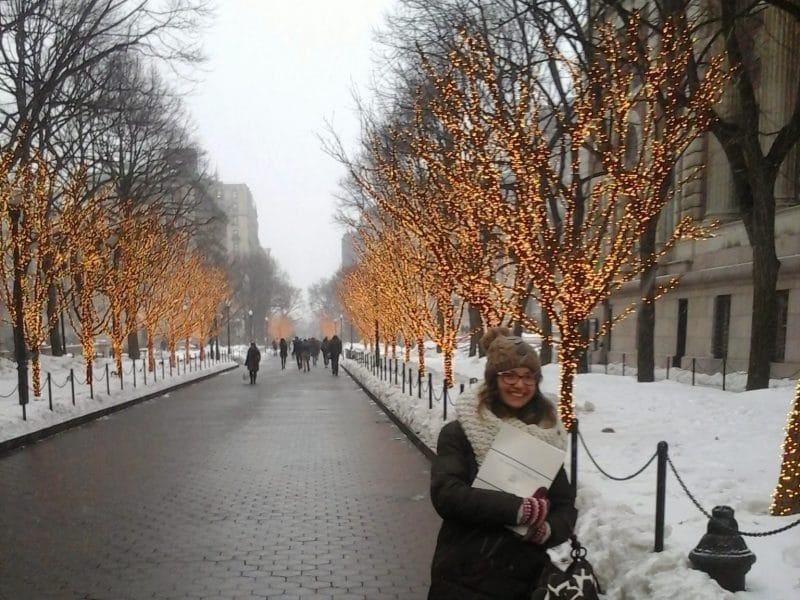
1. What inspired you to apply for the Fulbright Foreign Student Program?
Studying in the U.S. had been a big dream since the beginning of my undergraduate studies in Brazil. In fact, taking English grammar and American and English literatures as course requirements at the university changed my perception about the world, opening new possibilities and interests right in front of me. Attending the university on a national fellowship called ProUni and learning about so many instigating linguistic theories (especially the Chomskyan research program in linguistics) and literary masterpieces inspired me to pursue an academic career and increased my desire to study abroad.
My plan was to apply for a fellowship to go to the U.S. during my Ph.D. studies. My command of English would allow me to take full advantage of the research environment. In Brazil, we call this research period in another country during our Ph.D. studies “sanduíche”. Luckily enough, by means of a colleague, the Fulbright/Capes Program came to my notice. I thought it would be a great opportunity to immerse myself in a high-quality research environment in the U.S. I then applied and, guess what, my proposal was not awarded the fellowship. I did not give up, though. On my the second attempt, my application was among the 28 selected in the country! That was a “uhuu” moment!
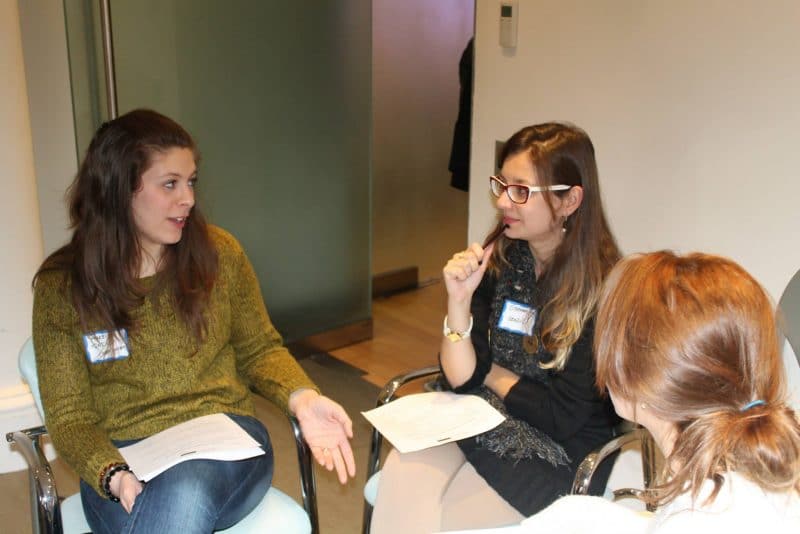
2. What were some of the most eye-opening moments during your fellowship?
I spent one year in a visiting period at the Rutgers University Center for Cognitive Science (RuCCS), under the supervision of Professor Ernie Lepore. It was a dream coming true. So, my advice is Do not give up in the first round. I knew I would have some of the richest experiences of my academic life during the 9-months fellowship, and I certainly did. I had the chance to go to Oklahoma, New York, New Jersey, Rhode Island, and California to discuss my work with other researchers from all over the world. It was so exciting to meet people as passionate as I am about what we do.
Over the course of the two semesters, I had the chance to present my research at Rutgers, Princeton, the University of California – Los Angeles, and the United Nations (UN) Plaza. Additionally, I applied for other opportunities in the New York City area related to the Fulbright initiative, such as the Global Classroom by One-to-World. I was also selected by the Rutgers’ Centers for Global Advancement and International Affairs to attend UN events and to present my research to graduate students at the institution.
I still remember many moments vividly. The applause we gave after a class of Professor Charles Gallistel at RuCCS was one of them (those who have experienced the unique sensation of a master class by a great researcher can empathize here). Going to the UN, speaking at an assembly and having the opportunity to meet authorities and young and highly-motivated leaders were very special moments as well. My presentation at the Penn-Rutgers-Princeton Social Epistemology Workshop was a challenging moment for me, and I still remember how nervous I was as the first speaker of the workshop and having as my audience widely-known experts on the topic. At RuCCS, I had the chance to discuss with an outstanding team of research leaders about language, reasoning, the brain, communication, and related topics. I also enjoyed the meetings with prestigious visitors who were at RuCCS to present their papers. The whole environment was a unique opportunity to grow as a student, researcher, and human being. The Fulbright community was very supportive and all institutions involved provided me with the very best.
Everything was made possible by the Fulbright/Capes Program and its network – because some people still believe in the transformational power of education and intercultural contact. Unfortunately, we find ourselves in a different political scenario just a few years later, where the current president of Brazil has announced on Twitter that the Minister of Education, Abraham Weintraub, is studying how to decentralize investment in philosophy and sociology in the nation’s public universities. More than that, the government has announced they are slashing university funding 30%. This move affects public universities, faculties and educational institutes like mine, with direct impact over scholarships, utility services and maintenance (please, read this article published by The New York Times on the topic. The effect of these political acts on research and education is huge. First, researchers are funded mainly by means of federal scholarships, and second, sociology and philosophy studies are essential for any research area. It is a worrying scenario for education, research and the advancement of knowledge in Brazil since the measures target institutions that concentrate some of the main efforts and products in these areas. People like us, who know the importance of plural teaching and qualified research for the development of a nation, need to inform the general public about the consequences of this type of measure. Not only does Brazil lose out on this, but I would say all international collaborations lose with this. And we may not forget that knowledge, besides being strategic for the advancement of peoples, is a legacy for all humanity.
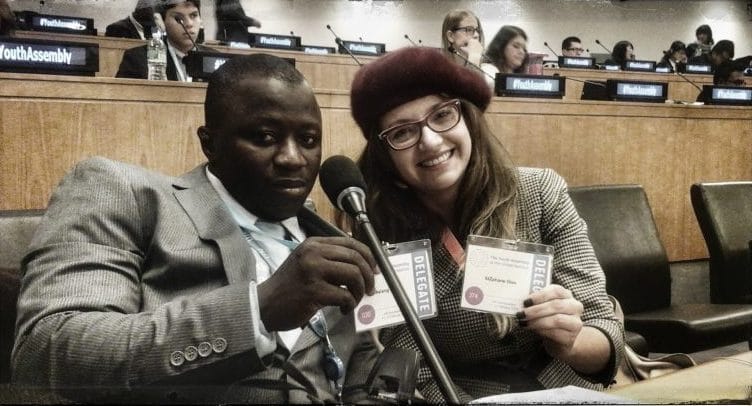
3. What tips would you give others applying to the Fulbright Foreign Student Program?
The fellowship I was awarded is focused on the Humanities, Social Sciences, Letters, and Arts, and has among the evaluation criteria the potential impact of the research project. My proposal on communicative rationality probably stood out because it highlighted the connections I was developing between linguistics, cognitive science, and philosophy, along with the direct applications of the theoretical model. Having a clear picture of the strengths and potential of your project enables you to address the possible contribution of your research, and this is very important. Additionally, find the right partners. The Center for Cognitive Science was the perfect place to develop my research since they host linguists, cognitive scientists, and philosophers that discuss topics related to my investigation.
As I said before, please do not give up if you have a negative response to your first application. Some great people are trying as hard as you are to get this opportunity. So, be motivated and patient and write a concise and very clear proposal. The most important previous work to do first is to establish contact with your host university and advisor. Make all the arrangements to have the required documents for the application (so please read the requirements carefully – I am still improving in this aspect when I need to submit a project). Do not underestimate the paperwork. It took me one entire day to submit all forms and upload all files.
Remember to have a positive outlook on the process because that will be a good opportunity to improve some very important skills. Be prepared for your phone interview (have your project at hand in case you need to check any information). That is the moment for you to show how relevant your proposal is, how committed you are to the excellence of your research, and how motivated you are to seize the opportunity. They already have your profile by the time they schedule a phone call, but now they can get a sense of your engagement with the whole process. So, be calm and act normally – your ideas should stand out! I wish you the best of luck as a candidate and Fulbrighter! Be the best version of yourself. ; )
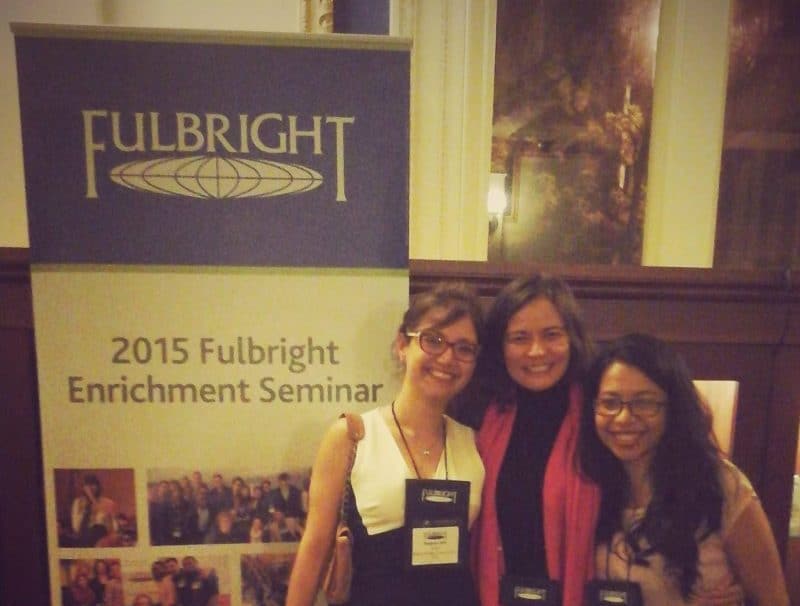
Stéphane Dias has a Ph.D. in Letters – Linguistics from the Pontifical Catholic University of Rio Grande do Sul and has been named to take over a teaching role at the Federal Institute of Education, Science and Technology Farroupilha (Rio Grande do Sul, Brazil). She was a Fulbright Visiting Research Student at the Rutgers Center for Cognitive Science during 2014-2015. She also lectured as a Global Guide at the One To World’s Global Classroom initiative in NYC. She is also part of the team of the bilateral social project “regioaktiv – Erhöhung des Umweltschutzes und der Einkommenssteigerung im brasilianischen Armenviertel Vila Sao Judas Tadeu” between German and Brazilian partners, and her research is focused on language and communication. Check out her website and academic profile.
Interested in applying? Bookmark the Fulbright Foreign Student Program to your ProFellow account.
© Victoria Johnson 2019, all rights reserved.